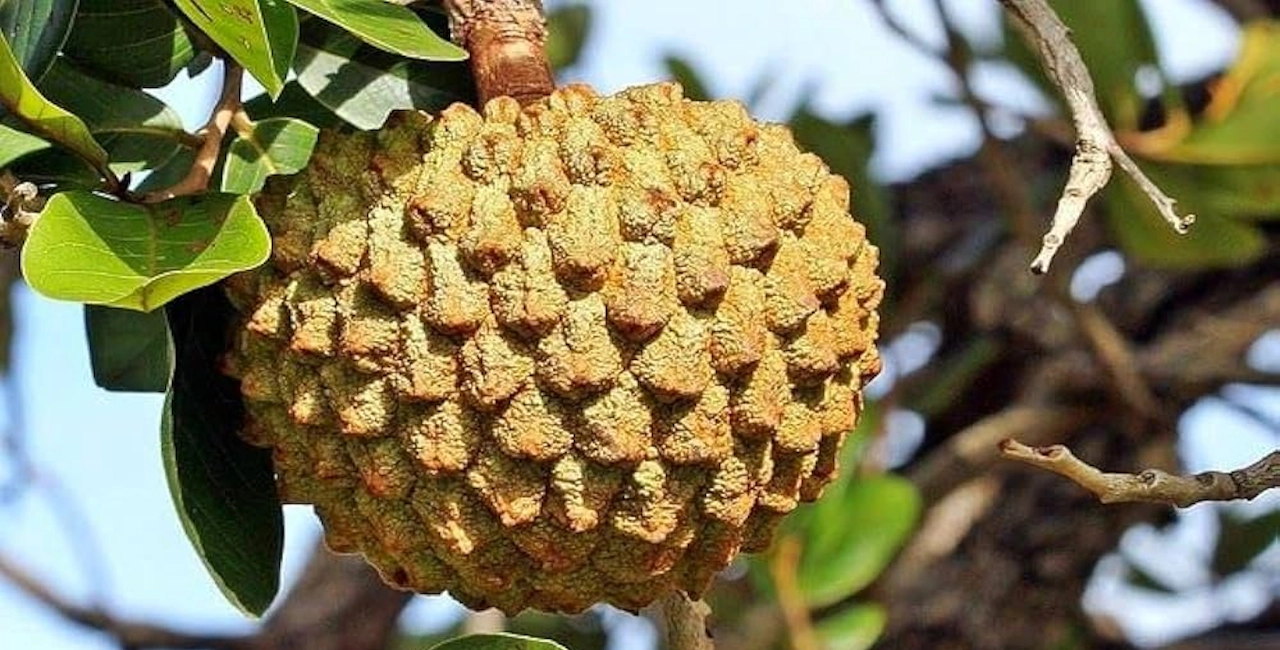Currently Empty: ₹0.00

Siriphal, commonly known as custard apple or sugar apple, is a tropical fruit cherished for its sweet, creamy taste and nutritional benefits. Scientifically termed Annona squamosa, this unique fruit belongs to the Annonaceae family and is widely cultivated in tropical and subtropical regions across the globe. Its distinct green, scaly exterior and luscious, aromatic pulp make it a favorite among fruit enthusiasts and health-conscious individuals alike.
The Origins and Cultivation of Siriphal
Siriphal is believed to have originated in the Americas, particularly in the tropical regions of the West Indies and South America. Over centuries, it spread to other parts of the world, including India, where it is extensively grown and enjoyed.
The fruit thrives in warm climates with well-drained soil and abundant sunlight. Cultivation requires minimal care, making it a popular choice among farmers. Siriphal trees typically grow to a height of 3-7 meters and begin bearing fruit within two to three years of planting. The fruiting season varies depending on the region but generally falls between late summer and early winter.
Appearance and Taste
The custard apple’s exterior is marked by its knobby, greenish skin, which resembles overlapping scales. Inside, the fruit contains creamy white pulp that is both sweet and fragrant, with a custard-like texture that melts in the mouth. Embedded within the pulp are shiny black seeds, which are inedible.
The flavor of Siriphal is often described as a delightful combination of banana, pineapple, and vanilla. Its rich taste and smooth texture make it a versatile ingredient for desserts, beverages, and even savory dishes.
Nutritional Value
Siriphal is a powerhouse of essential nutrients. It is rich in carbohydrates, dietary fiber, and natural sugars, making it a quick source of energy. The fruit is also packed with vitamins such as Vitamin C, which boosts immunity, and Vitamin B6, essential for brain health. Minerals like potassium, magnesium, and iron further enhance its nutritional profile, contributing to heart health, muscle function, and oxygen transport.
Health Benefits of Siriphal
- Boosts Immunity: The high Vitamin C content in Siriphal helps strengthen the immune system, protecting the body from infections and diseases.
- Supports Digestive Health: Its dietary fiber promotes healthy digestion, prevents constipation, and supports gut health.
- Regulates Blood Pressure: The potassium in Siriphal helps maintain fluid balance and reduces hypertension.
- Enhances Skin and Hair Health: Antioxidants and essential vitamins in the fruit contribute to glowing skin and strong, healthy hair.
- Aids in Weight Management: Despite its sweetness, Siriphal is relatively low in calories and can be included in a balanced diet.
- Provides Energy: Its natural sugars and carbohydrate content make it an excellent snack for an instant energy boost.
Culinary Uses
Siriphal is a versatile fruit that can be enjoyed in numerous ways:
- Raw: The simplest way to relish Siriphal is by eating it fresh. Scoop out the creamy pulp with a spoon and savor its natural sweetness.
- Smoothies and Shakes: Blend Siriphal pulp with milk, yogurt, or other fruits to create a refreshing beverage.
- Desserts: Use the pulp to prepare custards, ice creams, and puddings for a rich, indulgent treat.
- Salads: Add the fruit to fruit salads for a burst of flavor and texture.
Cultural and Economic Importance
In regions where Siriphal is cultivated, it holds cultural and economic significance. In India, for example, the fruit is often associated with traditional festivals and rituals. Its cultivation provides a livelihood for many farmers, particularly in rural areas where other crops may not thrive as easily.
How to Choose and Store Siriphal
When selecting Siriphal, look for fruits with a slightly soft exterior and a greenish-yellow hue, indicating ripeness. Avoid overly hard or discolored fruits, as they may be unripe or spoiled.
Store ripe custard apples in the refrigerator and consume them within two to three days for optimal freshness. Unripe fruits can be kept at room temperature until they soften.
Conclusion
Siriphal is more than just a fruit; it is a celebration of nature’s bounty. With its delectable taste, impressive nutritional value, and myriad health benefits, it deserves a place in every diet. Whether you enjoy it fresh, blended into a smoothie, or incorporated into a dessert, Siriphal promises a delightful and wholesome experience. Embrace this golden wonder and savor its natural goodness.


